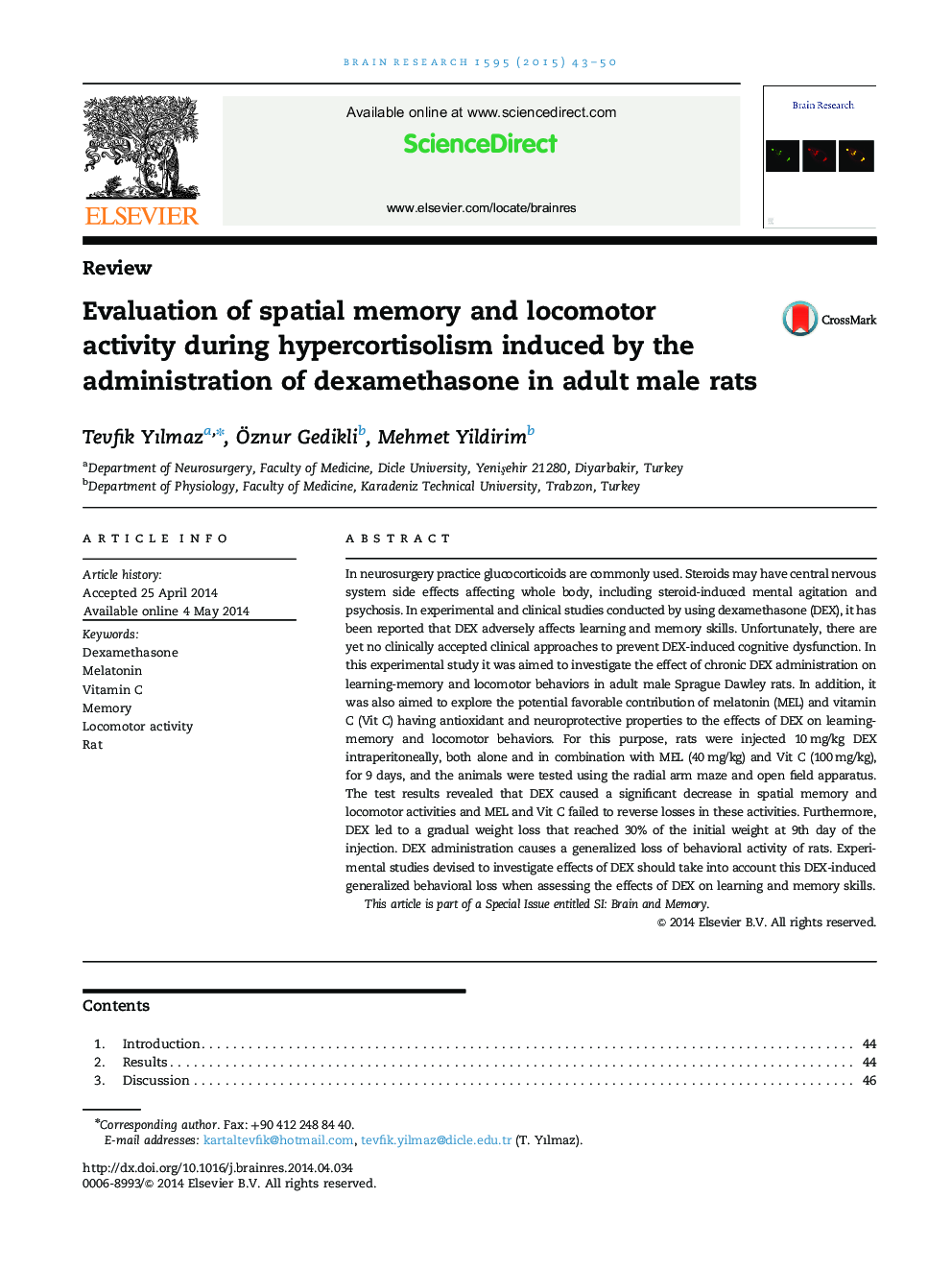| Article ID | Journal | Published Year | Pages | File Type |
|---|---|---|---|---|
| 6263201 | Brain Research | 2015 | 8 Pages |
â¢DEX caused a significant decrease in spatial memory and locomotor activity.â¢MEL and Vit C failed to reverse the losses in the behavioral activities.â¢DEX administration causes the loss of total behavioral activity in the rats.This article is part of a Special Issue entitled SI: Brain and Memory.
In neurosurgery practice glucocorticoids are commonly used. Steroids may have central nervous system side effects affecting whole body, including steroid-induced mental agitation and psychosis. In experimental and clinical studies conducted by using dexamethasone (DEX), it has been reported that DEX adversely affects learning and memory skills. Unfortunately, there are yet no clinically accepted clinical approaches to prevent DEX-induced cognitive dysfunction. In this experimental study it was aimed to investigate the effect of chronic DEX administration on learning-memory and locomotor behaviors in adult male Sprague Dawley rats. In addition, it was also aimed to explore the potential favorable contribution of melatonin (MEL) and vitamin C (Vit C) having antioxidant and neuroprotective properties to the effects of DEX on learning-memory and locomotor behaviors. For this purpose, rats were injected 10Â mg/kg DEX intraperitoneally, both alone and in combination with MEL (40Â mg/kg) and Vit C (100Â mg/kg), for 9 days, and the animals were tested using the radial arm maze and open field apparatus. The test results revealed that DEX caused a significant decrease in spatial memory and locomotor activities and MEL and Vit C failed to reverse losses in these activities. Furthermore, DEX led to a gradual weight loss that reached 30% of the initial weight at 9th day of the injection. DEX administration causes a generalized loss of behavioral activity of rats. Experimental studies devised to investigate effects of DEX should take into account this DEX-induced generalized behavioral loss when assessing the effects of DEX on learning and memory skills.This article is part of a Special Issue entitled SI: Brain and Memory.
